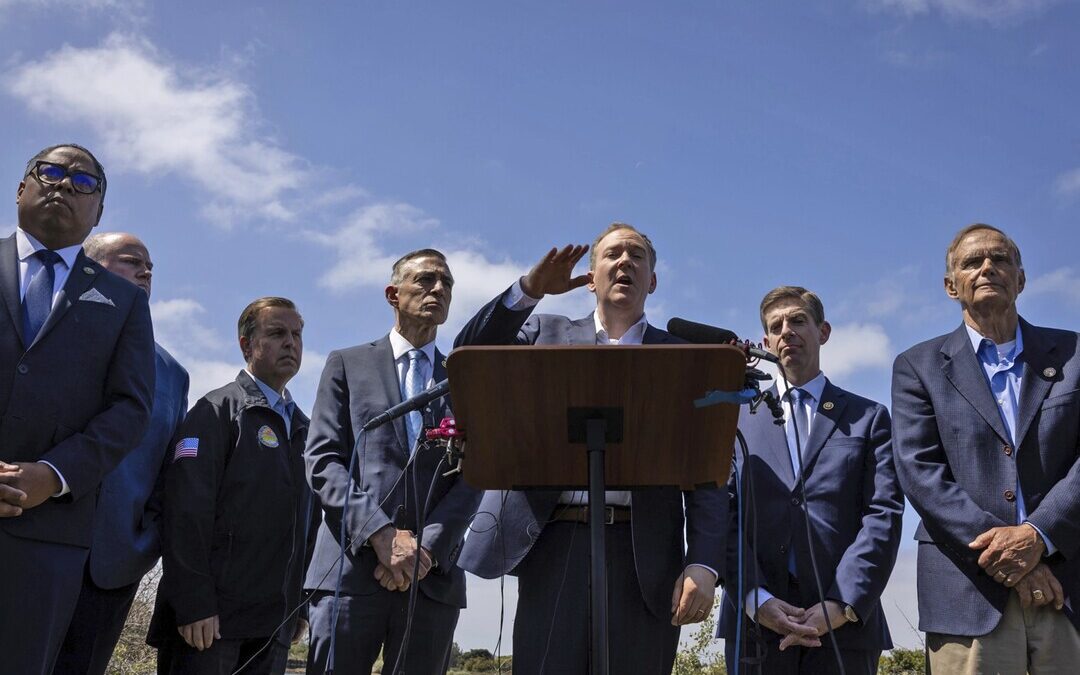US, Mexico Sign Agreement to End Tijuana River Sewage Crisis
US and Mexico pledge urgent action to stop cross-border sewage flows polluting San Diego’s beaches and waterways.
The United States and Mexico signed a memorandum of understanding on Thursday aimed at resolving the long-standing sewage pollution crisis in the Tijuana River Valley, a decades-old environmental and public health issue that has affected coastal communities in Southern California and northwestern Mexico.
The agreement, signed in Mexico City by U.S. Environmental Protection Agency Administrator Lee Zeldin and Mexico’s Secretary of Environment and Natural Resources Alicia Bárcena Ibarra, seeks to accelerate wastewater infrastructure projects and commit remaining funds under a 2022 binational water accord known as Minute 328.
“This is a major step toward achieving the Trump Administration’s goal of a long-lasting, comprehensive solution to the Tijuana River pollution crisis,” said Chad McIntosh, U.S. commissioner of the International Boundary and Water Commission, in a press statement.
Key Provisions Target Longstanding Pollution
The agreement secures the final $93 million of Mexican funding from Minute 328 and reduces project timelines. It also adds capacity-building measures to accommodate Tijuana’s future population growth and operation and maintenance needs on the Mexican side.
The MOU follows Zeldin’s April visit to San Diego, during which he met with local officials and Navy personnel. Negotiations intensified shortly afterward in coordination with the U.S. Department of State.
“Thanks to the strong commitment of President Trump and President Sheinbaum, Administrator Zeldin and Mexican counterparts reached a comprehensive agreement to end the decades-long Tijuana River sewage crisis,” the State Department’s Western Hemisphere Bureau said in a statement.
Bipartisan Applause and Regional Relief
The agreement drew praise across party lines, with both Republicans and Democrats in Southern California welcoming the move as a long-overdue intervention.
Rep. Mike Levin (D-CA) welcomed the accelerated construction timelines, while Rep. Scott Peters (D-CA) praised the EPA’s continued work with engineering teams. Rep. Juan Vargas (D-CA) called it a “continuation of vital cross-border infrastructure work.”
“This is a win for public health and cross-border collaboration,” said San Diego Mayor Todd Gloria. “A huge step toward ending this crisis.”
Local officials, including San Diego County Supervisors Joel Anderson and Jim Desmond, echoed gratitude toward the Trump administration and EPA Region 9 for prioritizing a problem they say had long been neglected.
Environmental and Defense Implications
The sewage crisis has long impacted the readiness of U.S. military forces stationed near the border. Secretary of the Navy John Phelan said the agreement helps protect the health and readiness of Navy personnel.
“It’s about time we stop poisoning our Marines, Sailors, and citizens,” said Sen. Tim Sheehy, a former Navy SEAL. “This is a huge win for America.”
Environmental groups also expressed support. “This is a massive step forward for the Tijuana River,” said Tom Kiernan, president of American Rivers.
A New Chapter in Cross-Border Cooperation
Mexico’s Secretary Bárcena described the agreement as a “reinforcement of bilateral environmental collaboration” under the guidance of President Claudia Sheinbaum.
“With full respect for our sovereignties, we signed the first environmental agreement between the United States and Mexico under her leadership,” she said in Spanish.
The MOU builds on prior cross-border efforts but is being hailed by supporters as the most aggressive and enforceable agreement to date.
“This is the first time we’ve seen a full commitment to a 100 percent solution,” said the America First Policy Institute’s California chapter, referencing the region’s long, often fragmented attempts to resolve the problem.
The Tijuana River crisis has plagued both nations for years, with raw sewage regularly flowing northward from Mexico, contaminating beaches in San Diego County and prompting frequent closures.
Nirmal Menon
Related posts
Subscribe
Error: Contact form not found.


